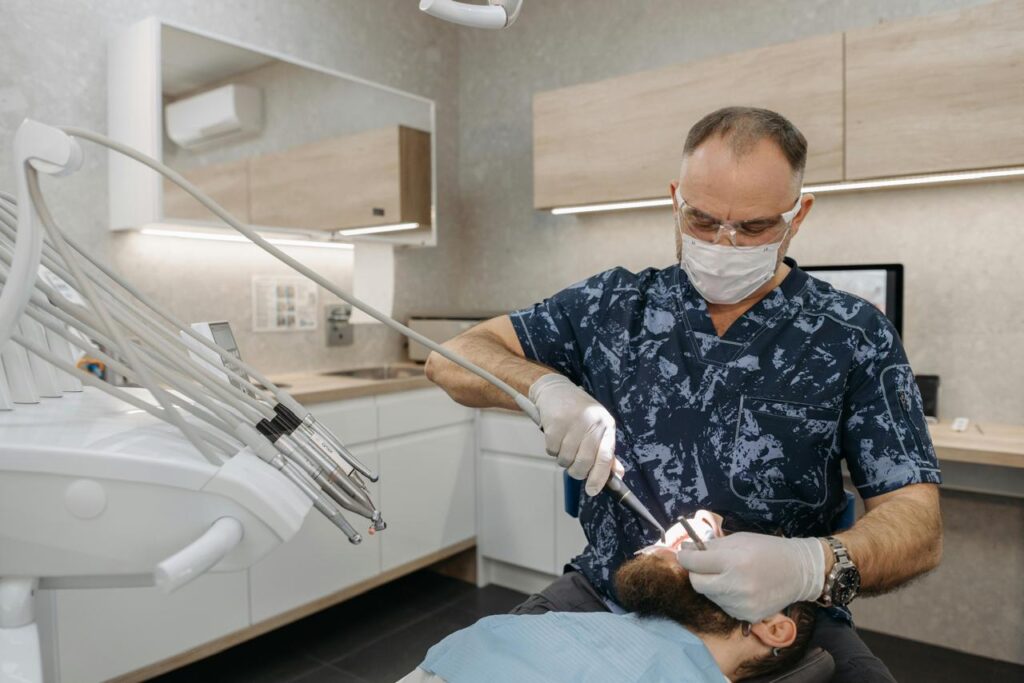Developing and maintaining good dental health is critical for overall health and confidence. Maintaining good dental and periodontal health is not the only benefit of good oral hygiene. You can maintain the strength and brilliance of your teeth by implementing good oral hygiene habits. This article examines the best practices for dental hygiene, with a focus on doable advice that supports long-term oral health.
1. Brushing Techniques
Oral hygiene relies heavily on the manner in which one brushes their teeth. You should use fluoride toothpaste and a toothbrush with soft bristles. Plaque and dirt can be successfully removed from the teeth by brushing in a circular motion while being gentle on the gums and enamel. Make sure that you brush your teeth for at least two minutes, making sure that you cover all of the surfaces of your teeth. The accumulation of bacteria, which can result in gingivitis and cavities, is prevented by using this procedure.
2. Flossing Daily
Flossing is a complementary practice to brushing because it allows you to access places between your teeth and along the gumline that a toothbrush is unable to adequately clean. Make use of approximately 18 inches of floss, looping the majority of it around your middle fingers and leaving approximately two inches of it for you to work with. To floss your teeth, use a back-and-forth motion to gently slide the floss between your teeth. Put it in a curved position against one of your teeth and move it into the space between your gums and your teeth until you feel resistance. Repeat the process for each tooth, including the teeth behind your back.
3. Regular Dental Check-ups
Maintaining good oral health requires that you make routine appointments with your orthodontist. For the removal of plaque buildup that cannot be reached by brushing and flossing, they offer professional cleaning services. Furthermore, these checkups make it possible to detect dental problems at an earlier stage, such as mouth cancer, gum disease, or cavities. To ensure that your teeth and gums continue to be healthy, an orthodontist in Cary, N.C., can also give you individualized recommendations and treatments.
4. Balanced Diet and Hydration
It is essential to consume a diet that is both well-balanced and abundant in vitamins and minerals, notably calcium, in order to maintain healthy teeth and gums. It is important to limit your consumption of sugary and acidic meals and beverages because they contribute to tooth disease and enamel erosion. In addition to keeping your mouth hydrated, which is crucial for the production of saliva and the maintenance of oral health, drinking a lot of water assists wash away food particles and bacteria.
5. Avoiding Harmful Habits
A number of behaviors might be detrimental to your oral health. Cigarette chewing and smoking are two behaviors that should be avoided since they leave stains on teeth, contribute to gum disease, and raise the risk of oral cancer. Caution should be exercised when consuming staining substances such as coffee and tea. If you do indulge, immediately rinse your mouth with water and think about using a straw to reduce the amount of food that comes into contact with your teeth.
6. Protecting Your Teeth
It is recommended that you wear a mouthguard to protect your teeth from injury or wear and tear if you engage in contact sports or if you grind your teeth at night. Mouthguards protect teeth from chipping, fractures, and loss of teeth by cushioning strikes as they occur. In order to provide you with the highest level of comfort and protection, your orthodontist can custom-fit a mouthguard for you. This will ensure that your teeth remain healthy and intact.
7. Maintaining Good Oral Hygiene Habits
Consistency is essential to the maintenance of healthy habits in dental hygiene. Every day, at the very least twice, you should brush and floss your teeth, particularly after meals. In the event that the bristles on your toothbrush get frayed, you should replace it every three to four months or sooner. A toothbrush should be stored in an upright posture so that it can air dry between uses. This will prevent the formation of bacteria on the toothbrush. The implementation of these straightforward routines will considerably improve your total oral health and well-being.
Conclusion
Prioritizing oral health care can greatly improve your teeth and gums. This can be achieved through constant brushing, flossing, routine dental checkups, eating a balanced diet, and giving up bad habits. For years to come, you can keep your teeth and gums strong and healthy by adopting these recommended habits into your daily routine and seeing your orthodontist for advice. Don’t forget that a beautiful smile encourages longevity and general health in addition to boosting confidence.



